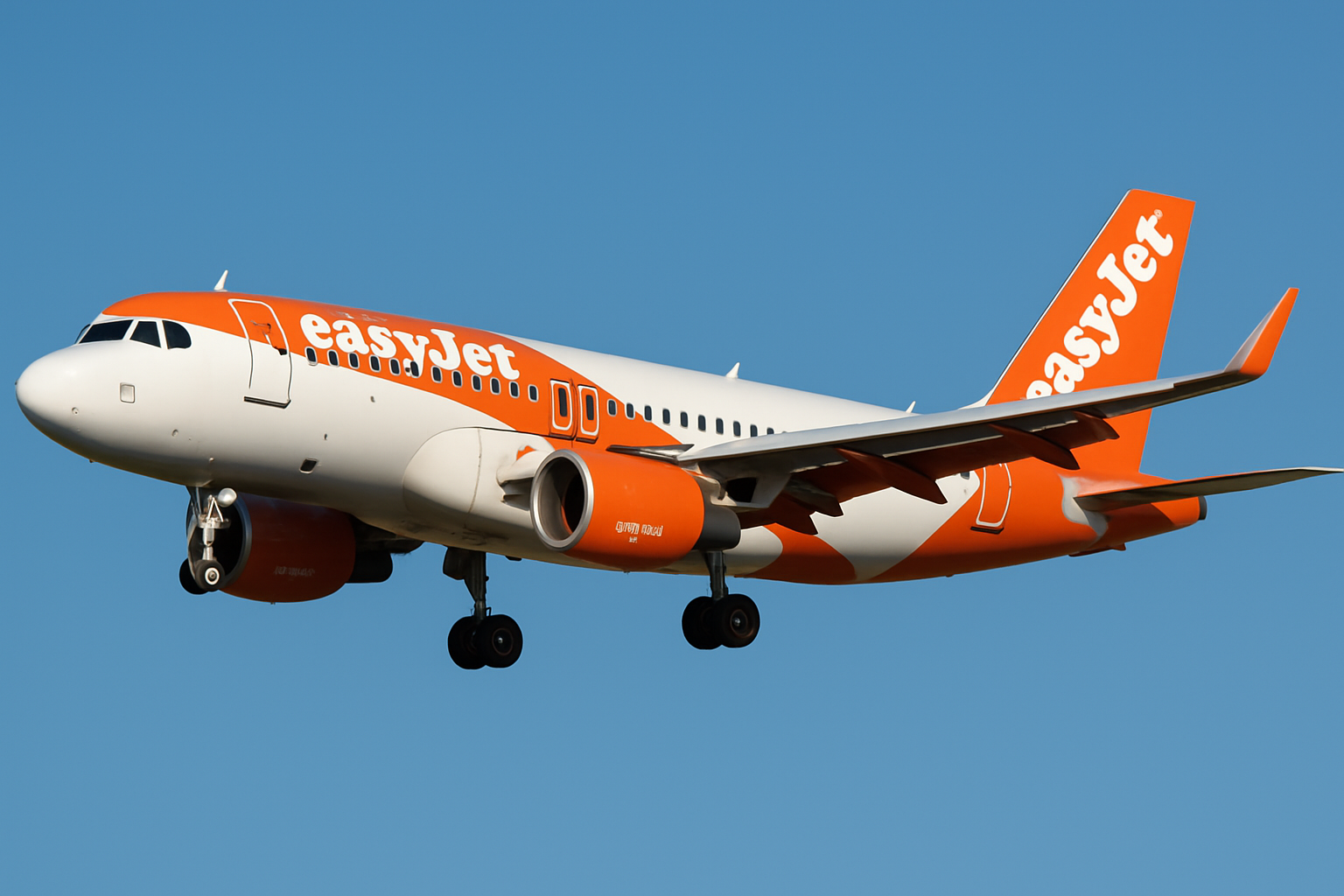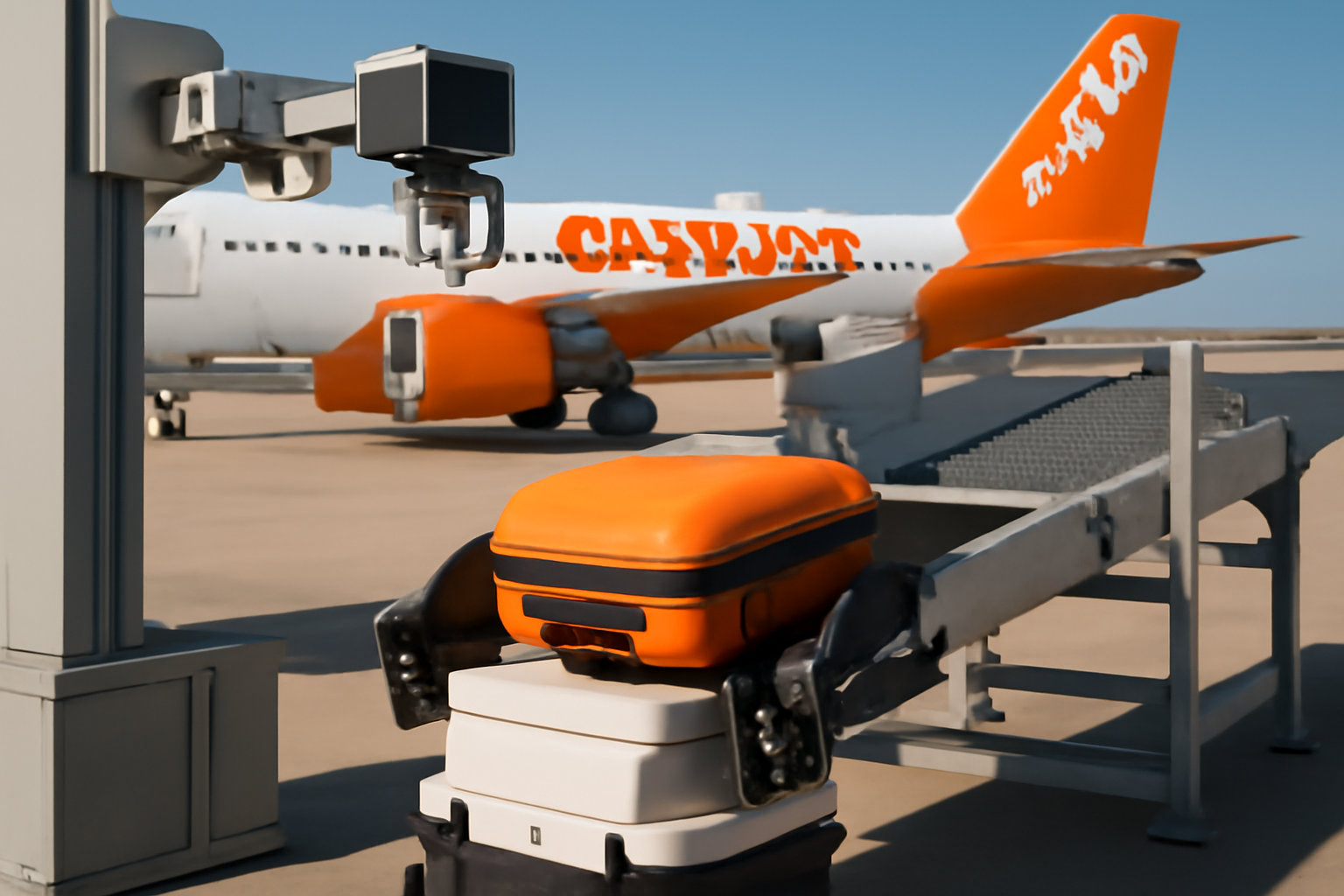
Step inside the silent engine room of a modern airline and you’ll find something as fundamental as jet fuel powering the entire operation data. At EasyJet, artificial intelligence (AI) has become an integral force behind day today efficiency, safety, and a seamless traveler experience. While customers enjoy ontime take offs and smooth trips, most remain unaware of the AI driven decisions shaping their journey every step of the way.
This in depth exploration reveals how AI influences every aspect of EasyJet’s business—behind the gates, within the cockpit, through operations control, and all the way to your inbox. The tangible impact on passengers, crews, and the airline itself demonstrates the profound transformation underway in modern aviation.

The Evolution of AI in Aviation
AI in airlines moved from theory to practice with accelerating pace over the last decade. What began as algorithmic scheduling and demand forecasting morphed into a complex ecosystem of machine learning, cloud analytics, and real-time robotics. At EasyJet, this evolution is not just about efficiency, it’s about resilience and human-centered travel.

How AI Powers Each Phase of Flight
1. Predictive Maintenance: Preventing Problems Before They Happen
Gone are the days of relying solely on routine checklists or waiting for systems to fail. Today’s EasyJet fleet is equipped with advanced sensors and IoT devices that measure everything from engine temperatures to vibration levels and hydraulic pressures. Data streams from every major component are relayed in real time to cloud based AI platforms.
- AI Algorithms in Action: These systems continuously analyze massive datasets, using machine learning models trained to flag the faintest anomalies—sometimes weeks before a human engineer would notice.
- Example: An AI model picks up a subtle increase in hydraulic pump vibration on one aircraft. This triggers a preemptive maintenance alert and schedules the necessary checks for the next layover, preventing an inservice failure and potential delays.
- Impact: Maintenance becomes predictive, not reactive; aircraft reliability improves, unplanned groundings decrease, and passengers benefit from fewer disruptions.
- EasyJet has openly championed these techniques, attributing significant savings and improvements in reliability to AI powered maintenance solutions.
2. Flight Operations Optimization
AI isn’t just about fixing problems before they happen—it’s also about running each flight as efficiently as possible.
- Route Optimization: By combining historical weather data, current airspace congestion metrics, and actual aircraft performance, AI models recommend fuelefficient, timesaving flight paths before takeoff. These recommendations are dynamically updated if conditions change.
- Fuel and Emissions Savings: Optimized routes mean tangible reductions in fuel consumption and lower emissions. On a busy day, even a 2% fuel saving per flight adds up to huge environmental and financial benefits.
- MidFlight Adaptability: During unforeseen events like sudden storms, AI advises pilots on alternative altitudes or reroutes, balancing safety, comfort, and efficiency.
- Supporting Sustainability: EasyJet’s eco focused AI platforms, such as SkyBreathe, continuously assess performance and suggest improvements, feeding into the airline’s larger sustainability commitments.
3. Dynamic Disruption Management
- Delays, weather, airspace closures, and technical blips can trigger a complex chain of events across the network. EasyJet leverages AI to orchestrate rapid, coordinated responses.
- Scenario Planning: AI can evaluate tens of thousands of possible responses within seconds—rerouting planes, assigning backup crews, or rebooking passengers.
- AIDriven Customer Communication: Automated systems push live notifications to affected passengers, propose alternate flight options, and instantly initiate compensation if warranted.
- Crew Rostering and Aircraft Assignment: AI assesses which crew are legally available, which aircraft are serviceready, and coordinates everything to minimize delays.
- Example: When air traffic controllers suddenly restrict traffic at a major hub, EasyJet’s AIfueled disruption management tools instantly recalculate flight timings and passenger reassignments, informing everyone before the ripple effects grow.
4. Personalized Customer Experience
AI is increasingly front and center in how EasyJet interacts with its passengers, shaping personalized journeys that go beyond generic mass communication.
- Dynamic Offers & Travel Inspiration: AI models analyze historical bookings, search behavior, and even inflight choices to propose holiday deals and suggest new destinations—with each message personalized for relevance and timing.
- Automated Assistance: Chatbots and virtual agents, powered by sophisticated natural language processing, now handle everything from flight changes to real time disruption management.
- InFlight Personalization: AI may soon tailor inflight entertainment, meal suggestions, and ancillary offers based on individual preferences gathered across previous travels.
- Accessibility & Assistance: AI systems provide targeted support for passengers with specific needs, smooth booking for families, and quick access to travel documentation—all increasing customer satisfaction and loyalty .
Jetstream: The Central AI Engine
Integrating Every Data Stream. At the heart of EasyJet’s digital transformation is Jetstream, the airline’s flagship AI platform. Jetstream serves as a connective tissue, integrating data from maintenance logs, sensor feeds, flight operations, crew schedules, ticketing platforms, and customer service channels.
- How It Works: Jetstream ingests and processes vast data in real time, applying custom built AI and machine learning models for each operational need.
- Mission Control for DecisionMaking: The platform empowers staff to make informed, rapid decisions—be it adjusting a departure due to oncoming weather, reallocating a gate for a late arriving flight, or flagging a spare part for overnight delivery.
- Resource Optimization: Even small improvements in asset allocation—how a gate is assigned, when a ground crew starts boarding, or which aircraft swaps to which route—translate into major improvements in punctuality and customer satisfaction.
Measurable Impact
- RealTime Adaptation: If a thunderstorm appears unexpectedly, Jetstream might recommend swapping two outbound gates or dispatching an extra crew to expedite boarding, mitigating delays before they domino across the network.
- Continuous Learning: Each day, Jetstream becomes “smarter,” drawing from outcomes and feedback to refine its models, incrementally improving predictive accuracy across all facets of operations.
Human Expertise + AI: A Synergistic Approach
AI does not replace EasyJet’s staff; rather, it amplifies human expertise .
- Engineers and Technicians: Receive targeted alerts about specific components at risk, allowing focused, skilled intervention rather than broad, routine checks.
- Pilots: Are delivered realtime operational recommendations but retain ultimate authority and responsibility for safety.
- Customer Service Teams: Use AIgenerated insights to support distressed or rerouted travelers, handle common questions instantly, and escalate complex cases to human staff as needed.
The result: Teams across EasyJet are freed from repetitive tasks and empowered to focus where their skills matter most.

Punctuality and Reliability
Predictive maintenance and dynamic rerouting have materially reduced delays and cancellations. AI-powered planning keeps operations nimble, so when things do go wrong, EasyJet responds faster than ever before.
Safety Enhancements
- Early detection of mechanical or operational anomalies reduces the risk of inservice failures. Data-driven decision making ensures that every step, from takeoff to touchdown, is safer and more controlled
Customer Satisfaction
- Faster, clearer communication during disruptions builds trust and alleviates frustration. Personalized offers, smoother booking, and proactive support—much of it “invisible”—encourage brand loyalty in a competitive market.
Environmental Impact
- Lower Fuel Use: AIoptimized routing and tactical flight planning contribute significant reductions in EasyJet’s fuel burn.
- CO2 Reductions: Fewer delays and holds mean fewer emissions, directly supporting EasyJet’s goals for greener aviation and net zero progress.
Case Study: Navigating a SystemWide Weather Disruption
Imagine a summer thunderstorm forecast to hit Paris and Milan, both major nodes on EasyJet’s route map:
1. Early Warning: AI weather trackers assimilate dozens of public and private forecasts, identifying the probability and projected window of disruption.
2. Preemptive Action: Jetstream recommends delaying a batch of inbound flights by 40 minutes, diverting two flights to nearby airports, and having standby crew on alert at the likely pinch points.
3. Passenger Communication: Within moments, affected customers receive push notifications, rebooking options, or hotel and meal vouchers triggered automatically.
4. Network Resilience: As weather impacts shift, the platform continues to reroute aircraft and crews dynamically, giving EasyJet maximum flexibility and passengers a minimum of inconvenience.
The Future: More AI, More Human
EasyJet’s roadmap is ambitious: the coming years will see AI support new customer experiences and even greater resilience.
- Biometric Boarding: Faster, contactless journeys through airports.
- AIPowered Baggage Systems: Smarter handling, tracking, and delivery.
- NextGen Personalization: Contextual trip planning, realtime dynamic itineraries, and virtual assistance before, during, and after your trip.
- Seamless Multimodal Journeys: AI will help integrate air, rail, and other means of travel, ensuring smooth transitions across Europe.
Yet at every stage, the human touch remains central.AI takes on the heavy lifting, giving EasyJet’s professionals more time to focus on safety, hospitality, and unique traveler needs.

Endnote
EasyJet’s embrace of artificial intelligence stands as a model for the airline industry. By combining cuttingedge digital tools with the wisdom of experienced teams, EasyJet not only keeps flights running smoothly but also delivers a safer, greener, and more enjoyable travel experience. The invisible hand of AI—quietly working behind the scenes, day and night—ensures that even the most complex operation in modern travel feels seamless and simple to the passenger. This is the future of flight: more intelligent, more human, and always committed to getting you where you want to go EasyJet rethinks airline operations with Jetstream AI platform – Google Cloud
The Stack – EasyJet’s Jetstream: A look at the airline’s AI engine EasyJet’s use of AI and disruptions – Computer Weekly








No Comments